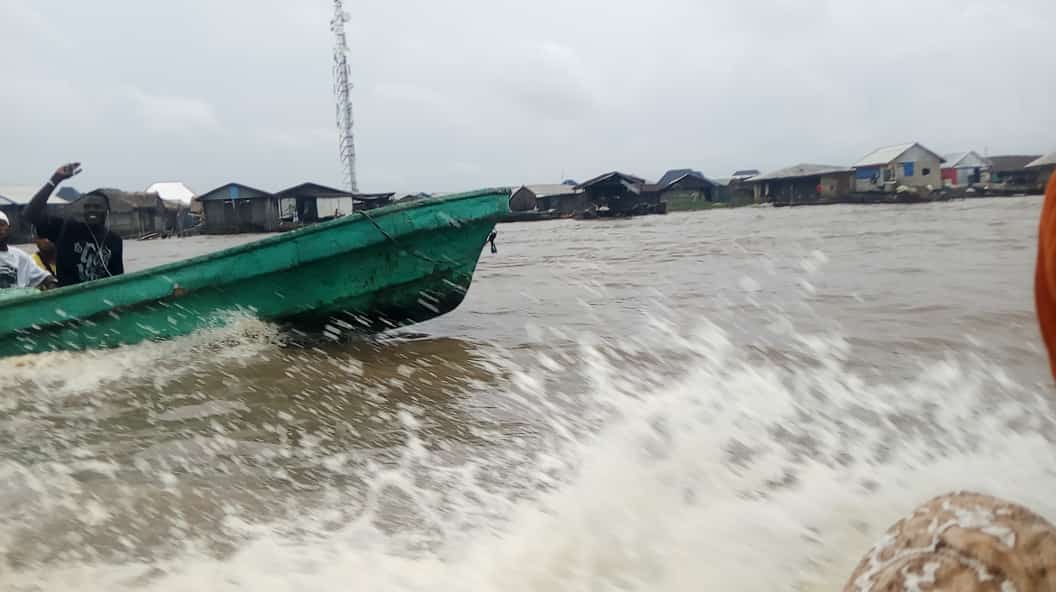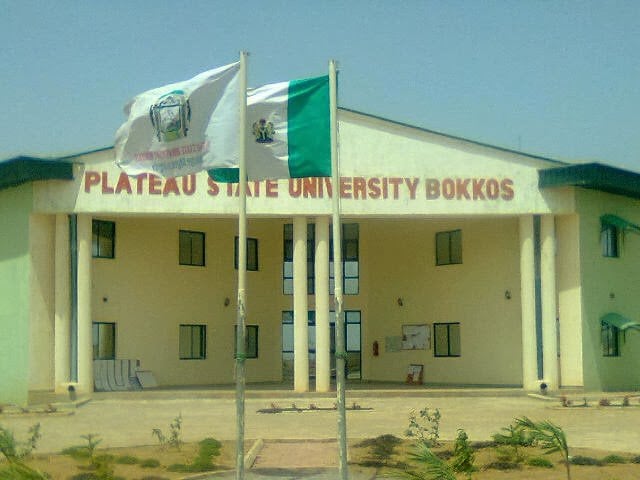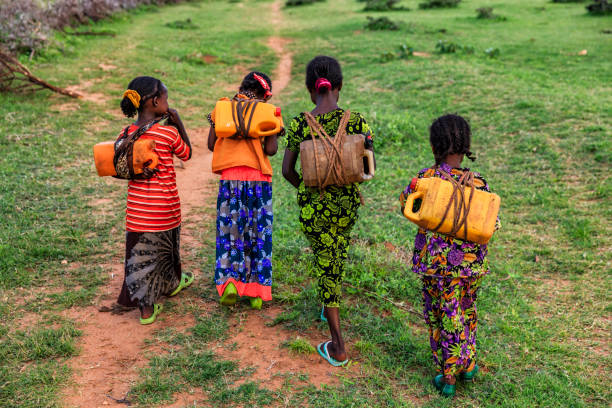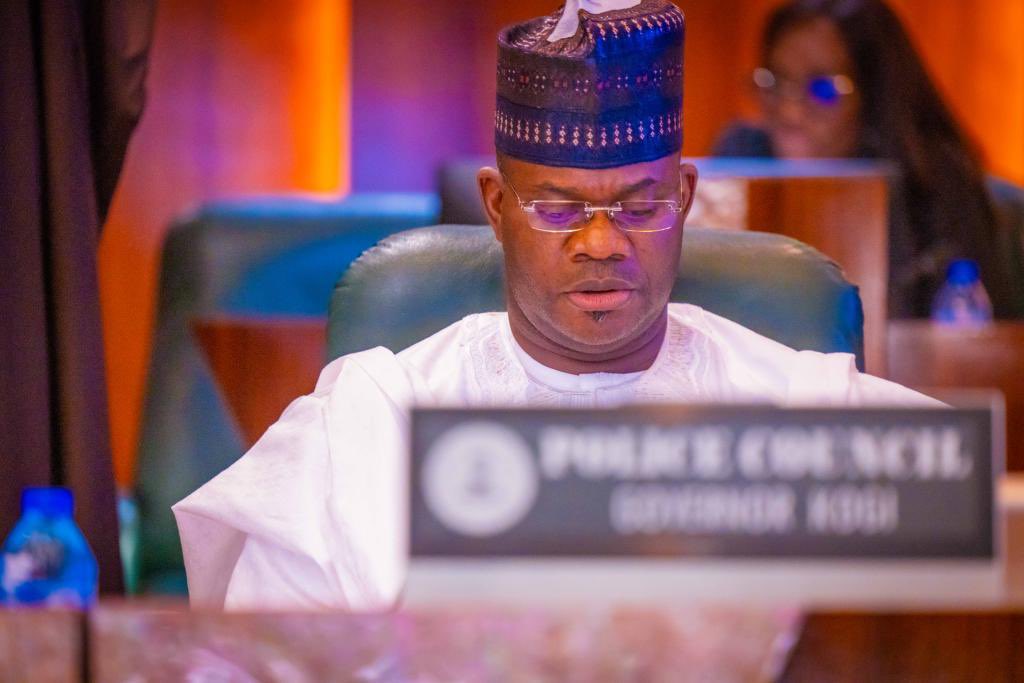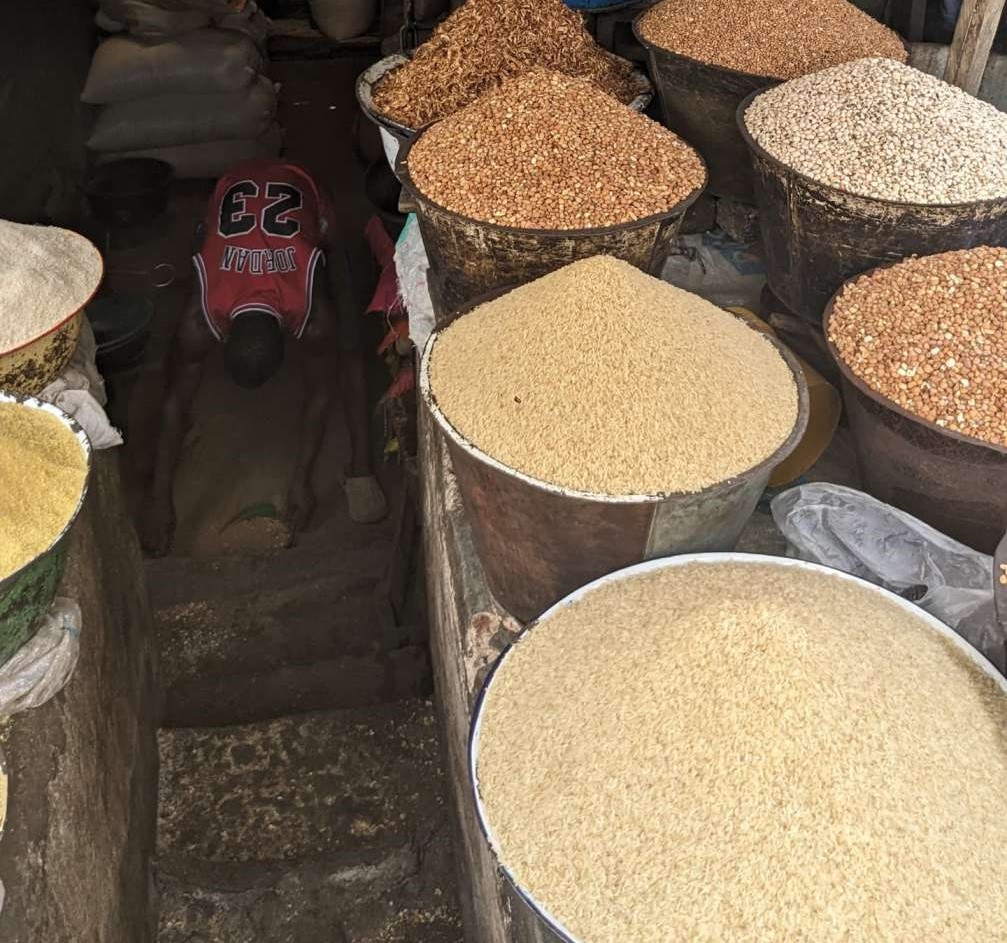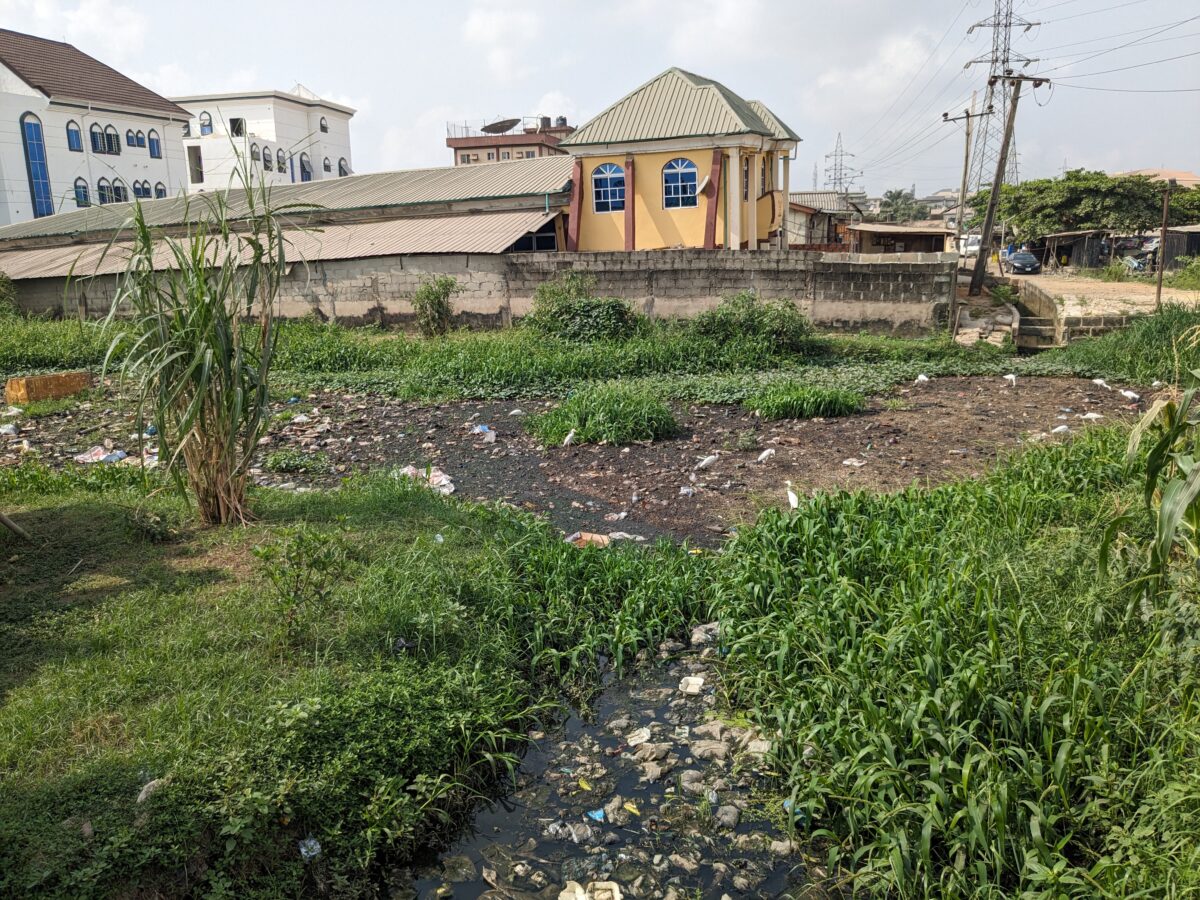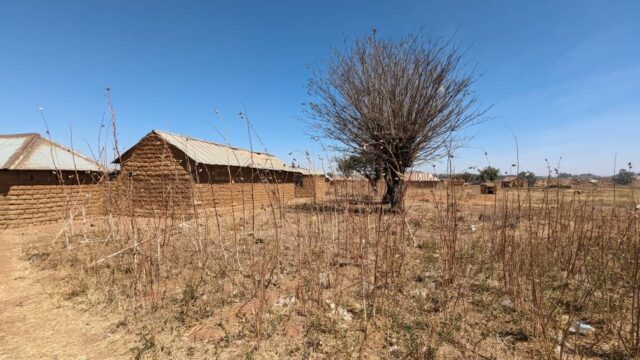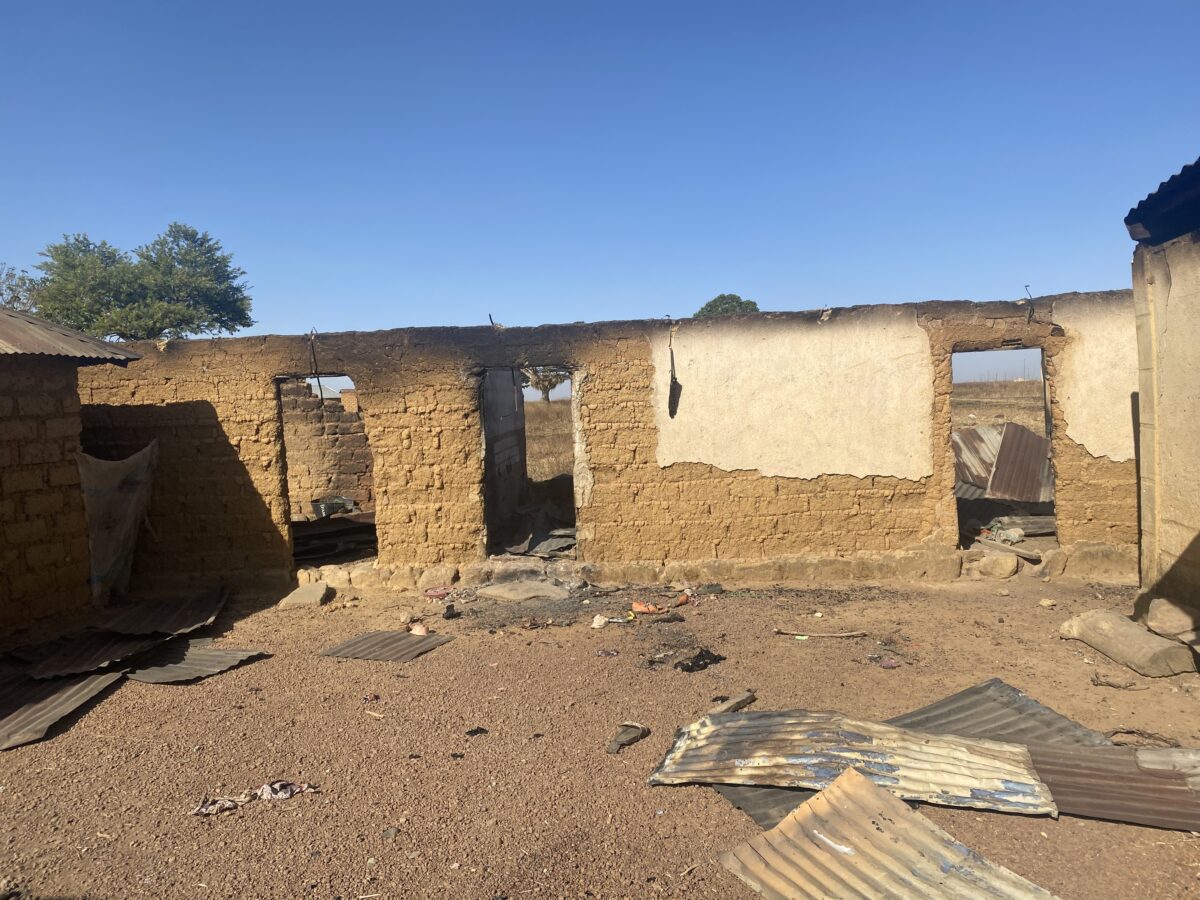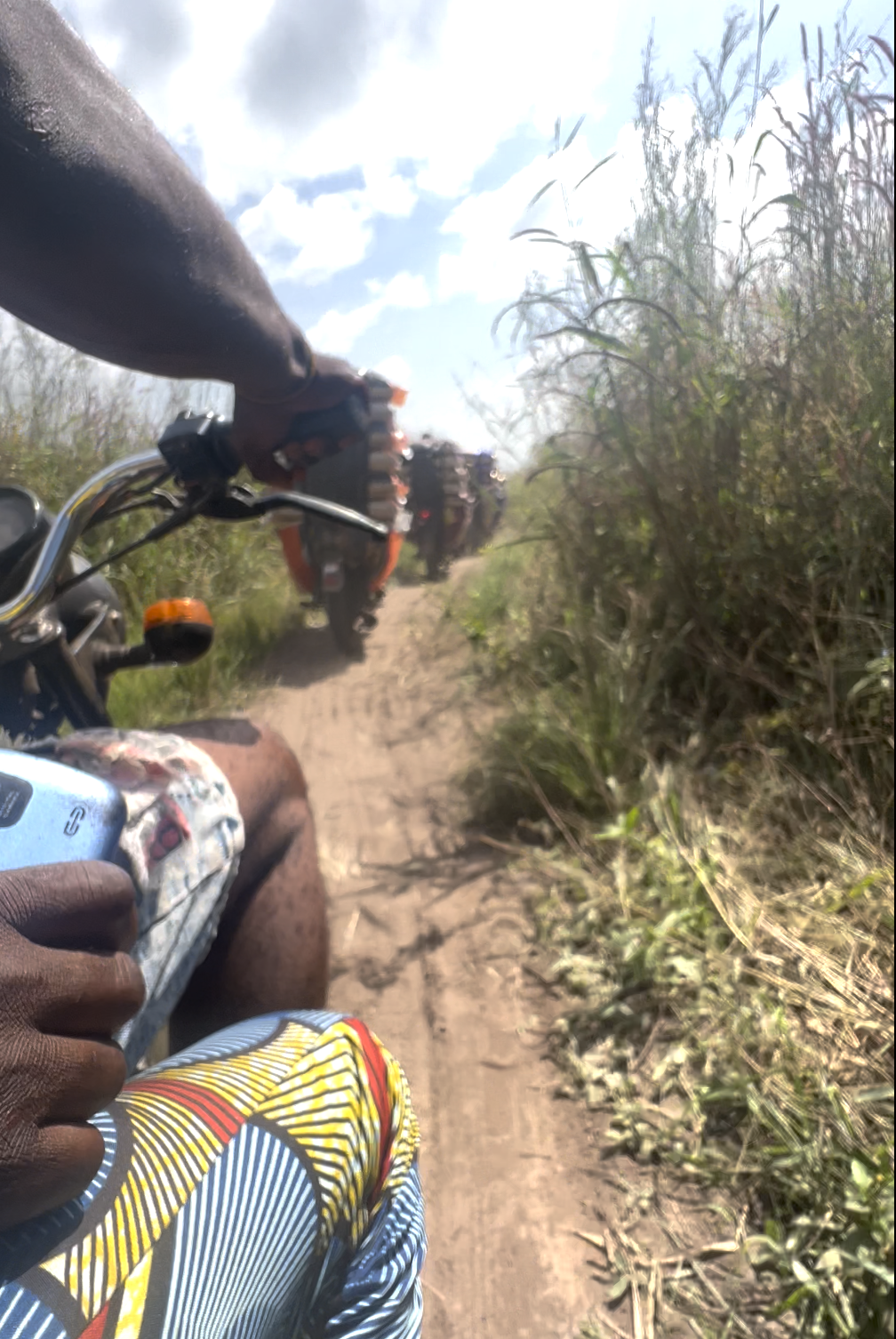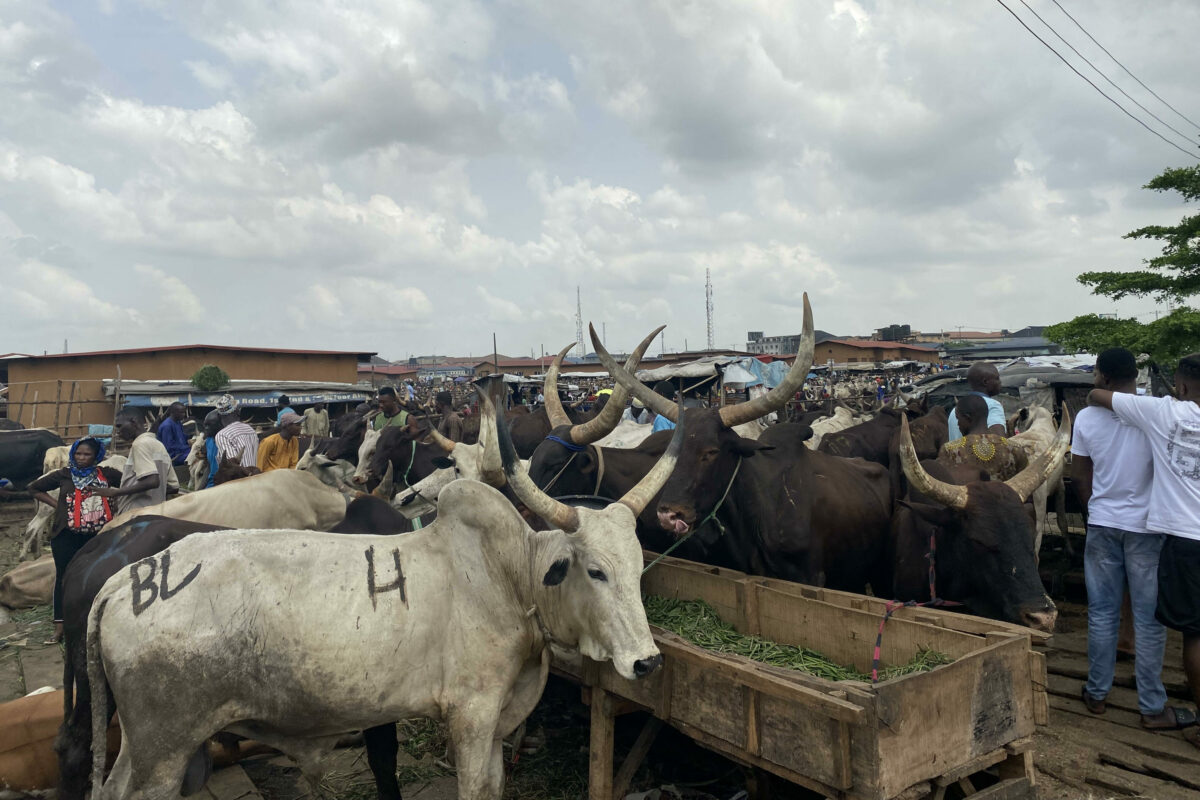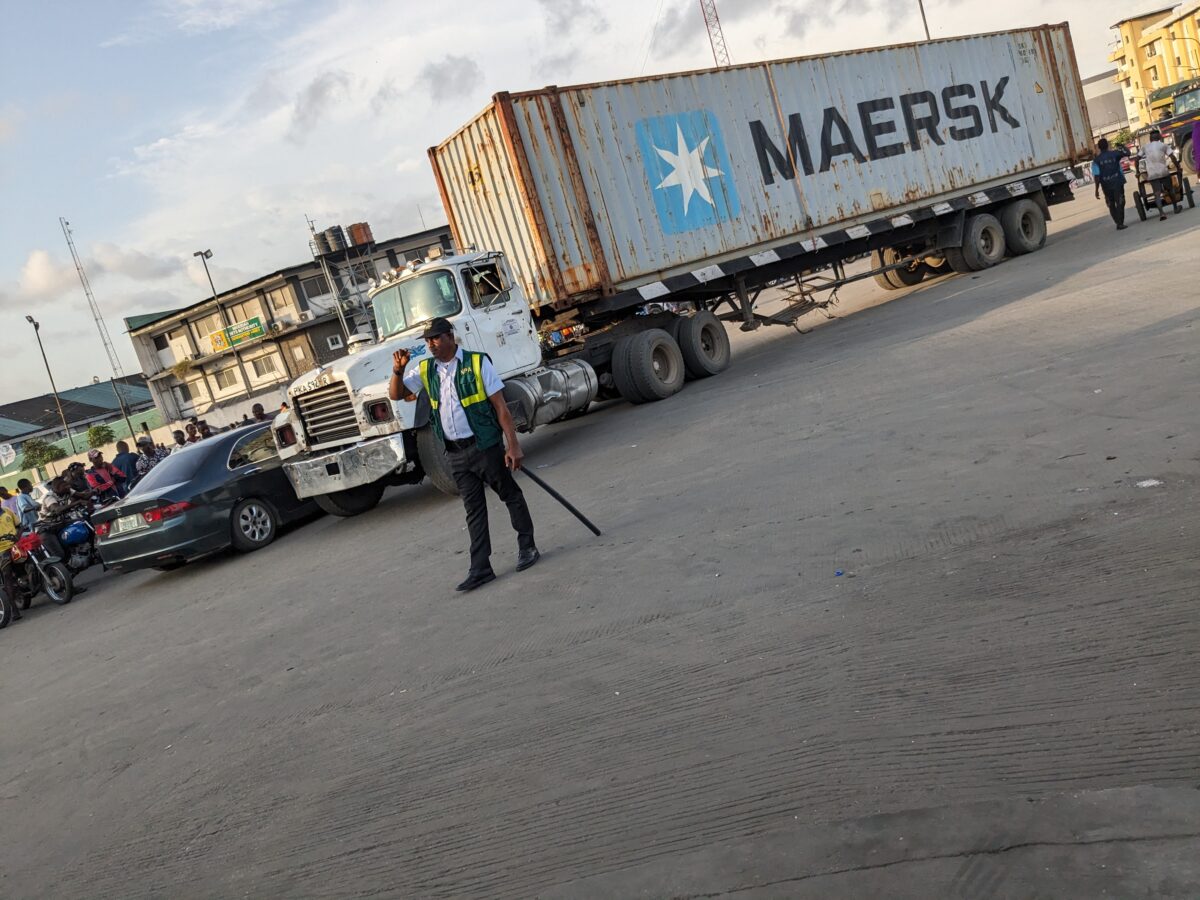As the longest coastline in the riverine areas of the Niger Delta region in Nigeria, Ilaje communities directly contribute to the nation’s bulkiest source of revenue, which is crude oil. Instead of basking in this wealth, the inhabitants live in abject poverty, with water being their biggest nightmare ever. Gabriel Ogunjobi embarked on a two-day risky adventure on the water to reveal how Nigeria’s oil exploration is killing many Ilaje people.
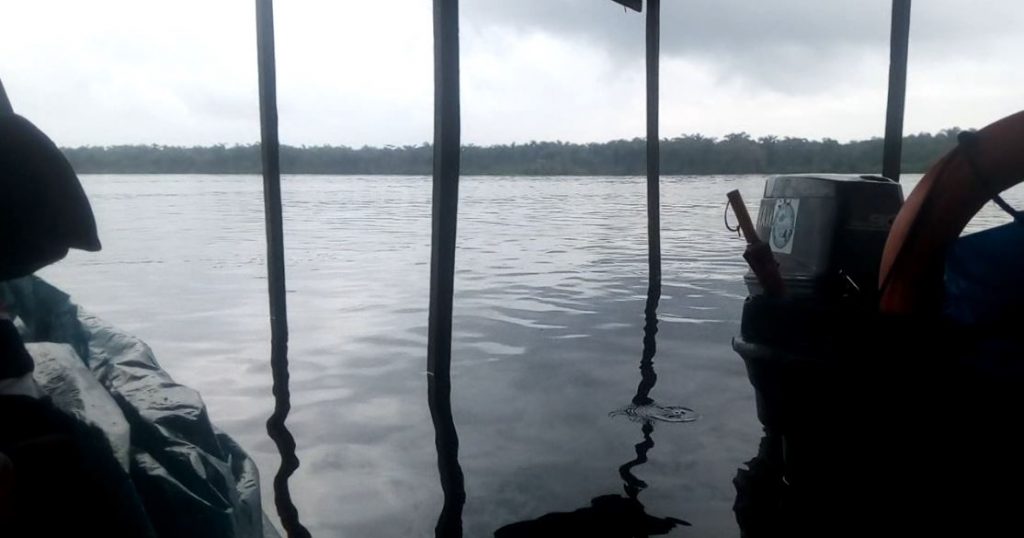
At a first glance, over a dozen enthusiastic fishermen and women hopped in a speedboat at Igbokoda. Many loaded their baskets of fishes and kegs of groundnut oil, among other items, into the boat. But, no one was worried about a possible boat mishap. They didn’t care to wear a life jacket.
If the speedboat capsized, many Ilaje people would swim; they learnt the skill as children. But it would take sheer luck for this reporter not to drown. It was an adventure.
WAR ON WATER
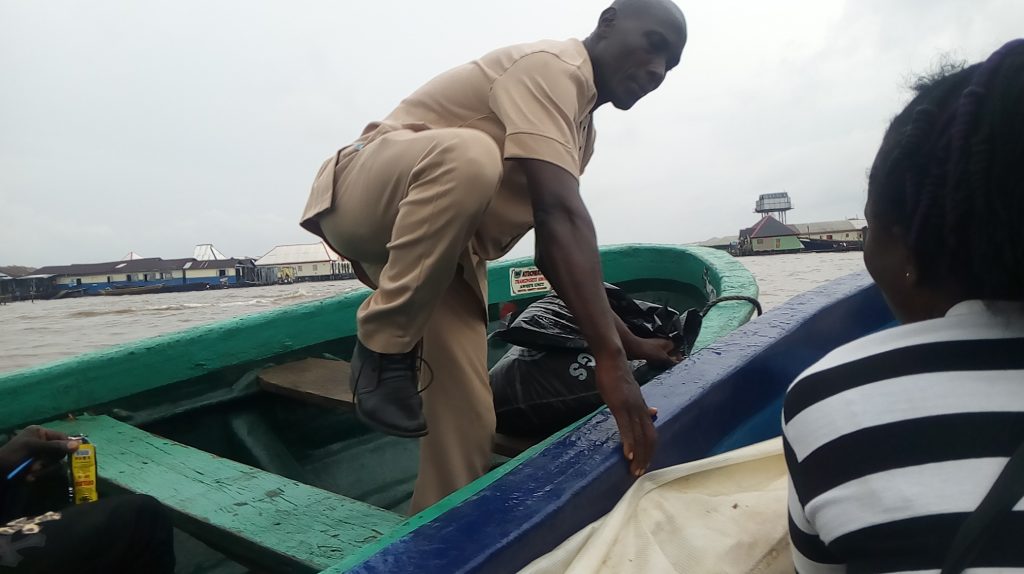
On the cloudy afternoon of August 9, the speedboat was headed to Molutehin community. The journey would normally take about an hour and 30 minutes but we had barely sailed for15 minutes when some marine police officers ordered all passengers to raise their hands up, pointing AK-47 rifles to everyone’s head during the brief security check.
Four more checkpoints manned by officials of the Nigeria Security and Civil Defence Corps (NSCDC), naval officers and other security agents would be seen before reaching Molutehin.
With passengers’ hands up in the air a mile away from security agents, security agents can spot an oil smuggler trying to attack them. They then have the advantage of self-defence.
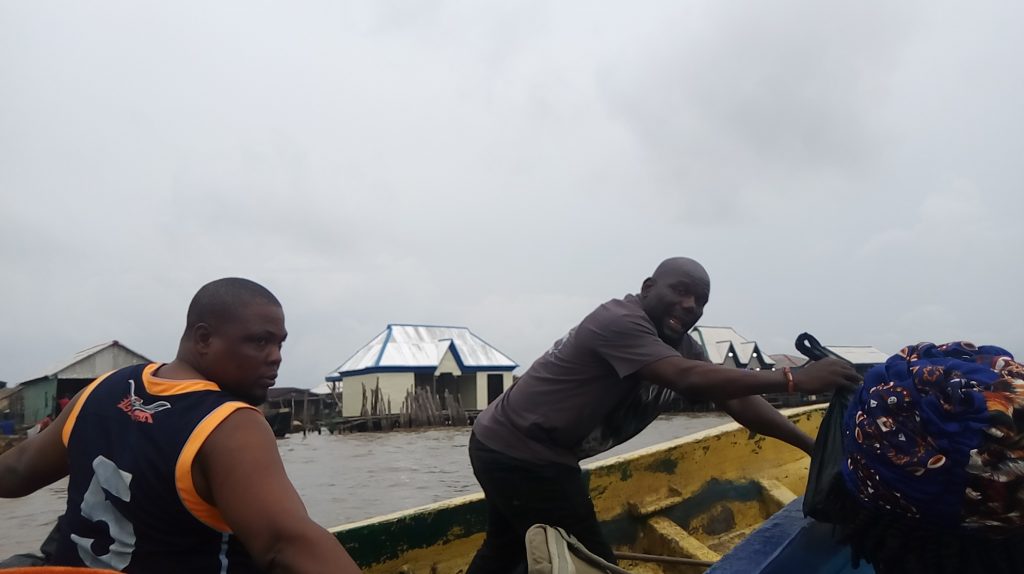
Throughout the trip, none of the officers at the checkpoints bothered to challenge the transporter over the obvious overloading of passengers and goods, or for not wearing a life jacket.
Two days earlier, however, Ogooluwa Osomarigho, a 40-year-old man from Obe-rebimino had died on water and 15 other passengers sustained injuries of various degrees following a boat mishap.
Shortly after the accident, Olufemi Omole, the spokesman of the NSCDC in Ondo, issued a press statement, blaming transporters for over-speeding and lack of life jackets, but he was silent on the exact location the mishap happened. The information might have revealed the government’s culpability in the calamities bedeviling the coastline area.
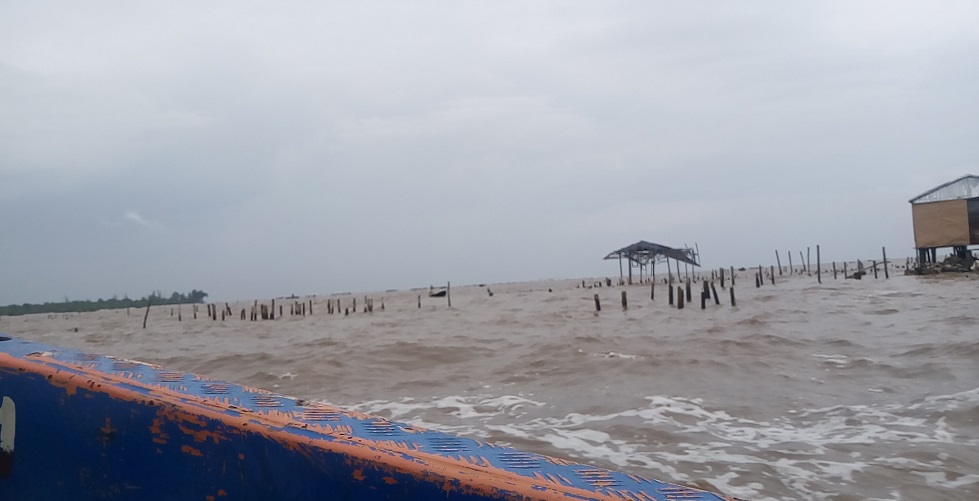
FIJ found out that the mishap happened at Awoye, the community submerged following a sea surge in 2020 as a result of oil exploration on the shore. Sources told FIJ that the ship was ripped apart by a turbulent tide and its remains were yet to be seen.
“That day, the sea level rose at Awoye and the boat was traveling against the tide of the sea,” an eyewitness, who pleaded anonymity, said. “The boat indeed was not in good condition, so it was difficult to escape that force on the water at that moment.”
“The authorities intentionally didn’t reveal the exact location because they knew the sea surge is a consequence of the oil activities going on the shore.”
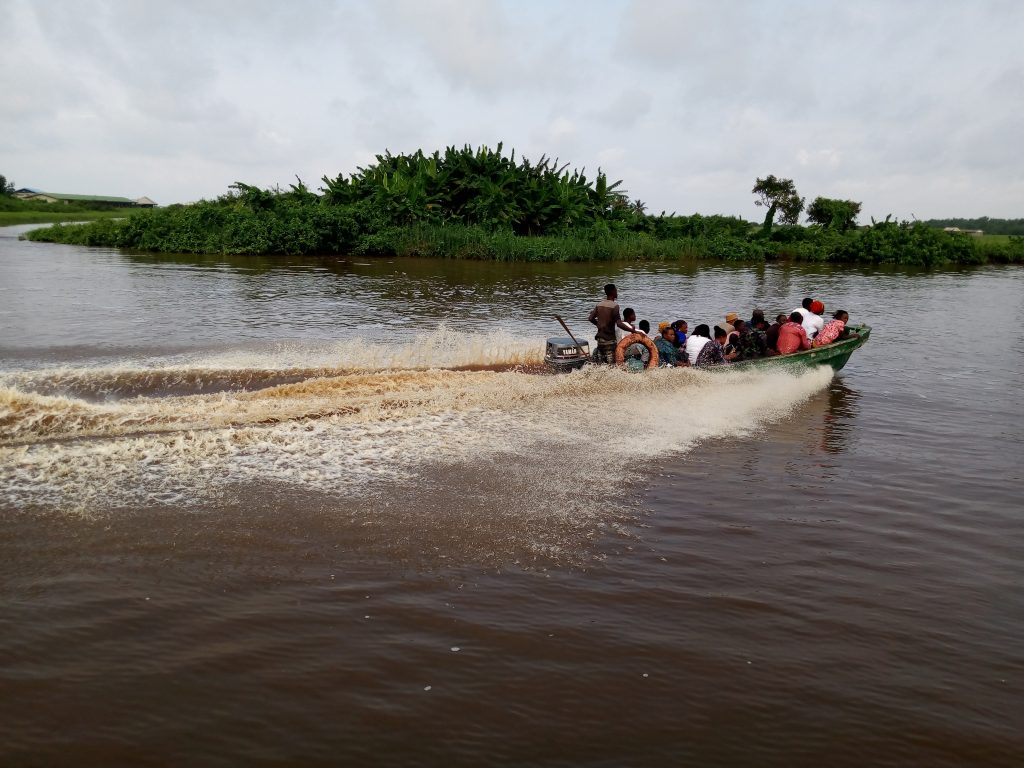
In Ilaje, there are two phrases used in describing disaster caused by the sea. The first is ebi ogha, used when the force of the sea is hard and the water flows directly into the sea. At its worst, it could break anything as it happened in the case of Osomarigho. Ewo ogha, the second kind of sea disaster, occurs when the sea level rises and its excesses flow into the coastline communities to submerge them.
The operations of oil companies in Ilaje communities often result in perennial sea surges. The most consequential incident was in November 2020, when over 2,000 people were displaced and more than 200 houses were destroyed in Awoye.
Between 2019 and September 2020, Mese, Awoye and Gbagira were also completely wiped out by the surges.
AYETORO, THE MARINE FORTE, IS DOWN!
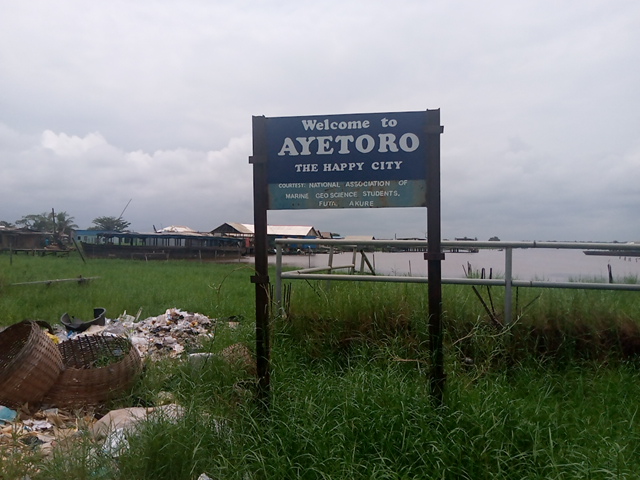
Another community before Molutehin is Ayetoro. This island in Ilaje Local Council was founded in 1947. It is the marine forte and gateway to other coastal communities around the high sea which is an extension of the Atlantic Ocean.
“Let me shock you. Those of us at Ayetoro and other parts of Ilaje eat lesser meat than you people on the uplands,” Ayobami Aralu, Ayetoro community youth leader, lamented. “If we want to buy fish, we depend on Igbokoda because sea encroachment and oil spillage have sent 80percent of our fishermen to places as far as Akwa Ibom and Delta for a better fishing experience, leaving the entire Ayetoro community in starvation.”
“Fishermen and women cannot access the Atlantic Ocean from here again because our shorelines no longer exist, as they have been encroached.”
With the encroachment of the sea into Ayetoro waters, the salt level increased, therefore, the waters became inhabitable for many fishes. This explains the migration of many fishermen and women from Ayetoro.
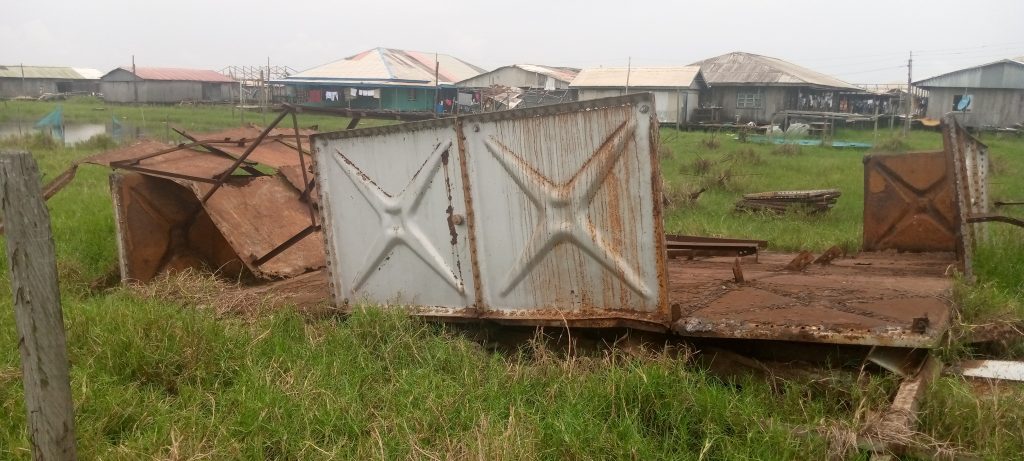
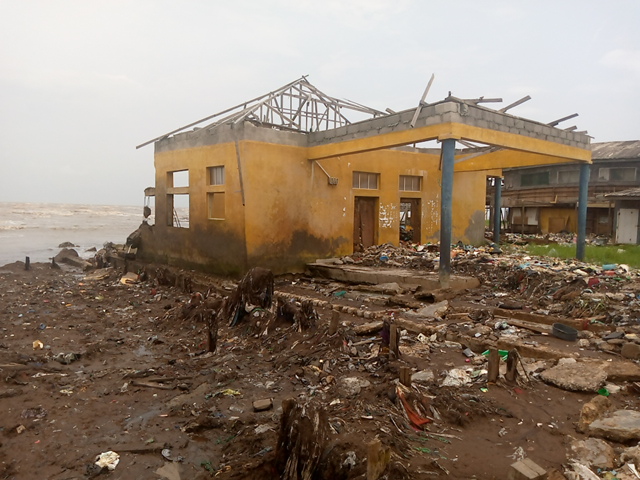
Apart from this, Ayetoro, which was largely independent, with most of its amenities, such as electricity and water, provided with community funds, now suffers like other communities in the riverine area. A windstorm in 2019 destroyed their water reservoir and underground pipes supplying water to all houses.
“This sea surge has been drastic in the last three years,” Aralu added. “People no longer feel safe. We have sought the attention of the government and international communities but got no response.”
“Ilaje Local Government is the only oil-producing area in Ondo State, yet the poorest. We live on the water but none to drink. Across the length and breadth of Ilaje, there is no potable water.
“Our resources are what they used to develop Akure, the state capital, and other places, yet we are suffering here.”
READ ALSO: Trees Also Bleed: Inside the World of Illegal Loggers in Ekiti
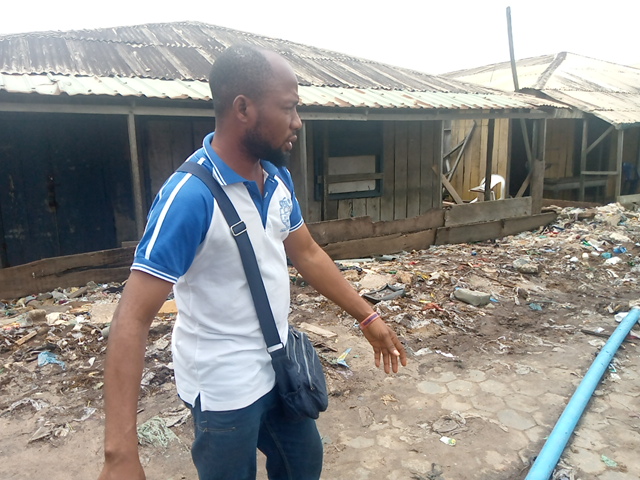
FIJ’s investigation revealed that the shore protection project at Ayetoro was awarded to Gallet Nigeria Limited in December 2004, at the cost of N2.4 billion, and 25percent, which was N600 million, paid as mobilisation fee.
The contract was withdrawn by the NDDC because the company lacked the technical capacity to execute the project. It would later be re-awarded to Dredging Atlantic Limited in 2009 for N6.2 billion, and another 15percent mobilisation fee, which was N950 million, was paid to the new contractor. Twelve years later, the Atlantic Ocean, which was formerly about three to five kilometres from the border, encroached on Ayetoro shorelines. The aftermath is the constant flooding of the community.
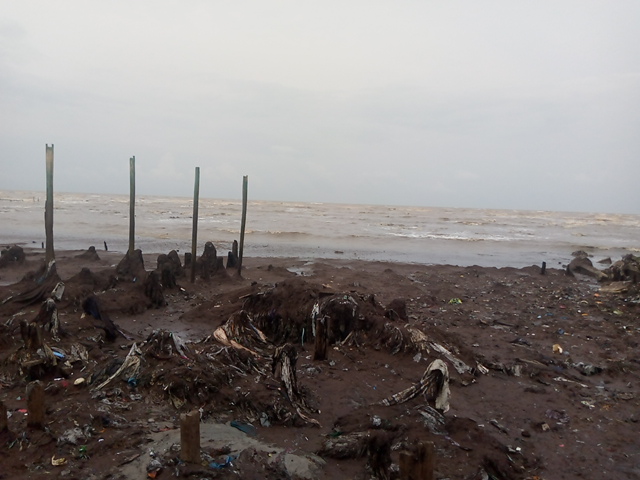
NDDC SCAMMED THE POOR. NOW, DEATH HOVERS!
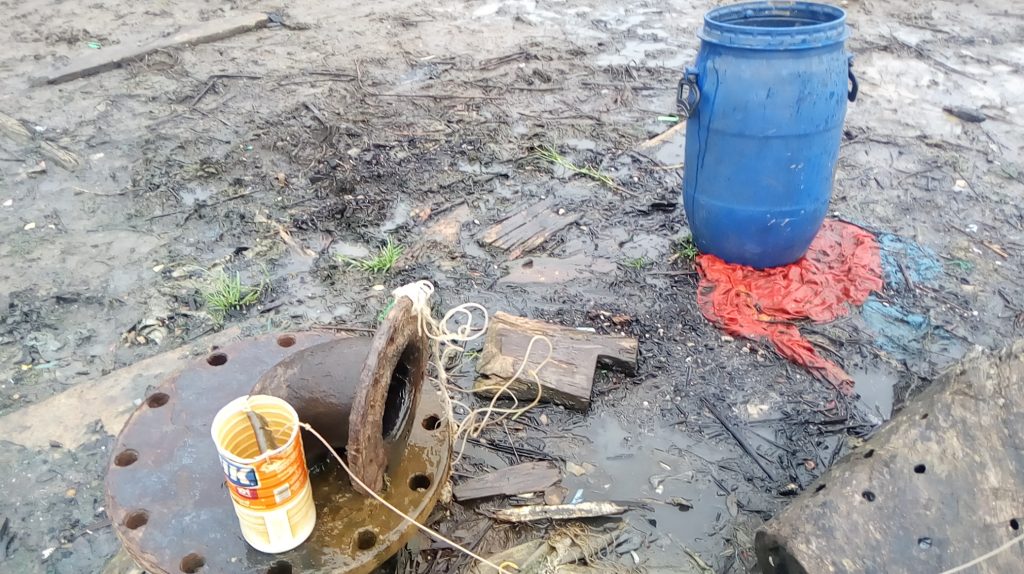
Non-existent potable water is not a problem unique to Ayetoro. It is the same situation in other riverine communities, including Ilowo, Idi-Ogba, Erunna, Obenla, Ibila, Ipaare and Molutehin.
At Molutehin, two children were seen trying very hard to scoop water into a 50-litre drum through a small opening of an uncompleted borehole project.
“If you drink that water, you will purge for three to four days,” Elisery Iyibo, Molutehin community leader, said. “We are only drinking it because we don’t have a choice and our body system has adapted to it.”
“I can’t say if the effects of the bad water intake would manifest in the future for residents, but I know visitors always complain of diarrhea whenever they take it.”
Documentary: Ilaje Coastline Residents Die so Nigeria May Survive
While observing the terrain, Atimiri Oladuni protested to this reporter over the neglect of the Niger Delta Development Commission (NDDC)’s project, saying, “All the women in this community want water and electricity”.
“It has been nine years since we last had electricity. Even the solar-powered electricity didn’t work. If we don’t reach Opuekepa town, you won’t get water.”
“This water is not good for drinking. One woman drank the water and was hospitalised. If you wait for them to bring the water, you will see dirts in it.”
A few miles away, there was an abandoned water project by the Ilaje Regional Development Council that has not functioned in over a decade since it began, according to the residents.
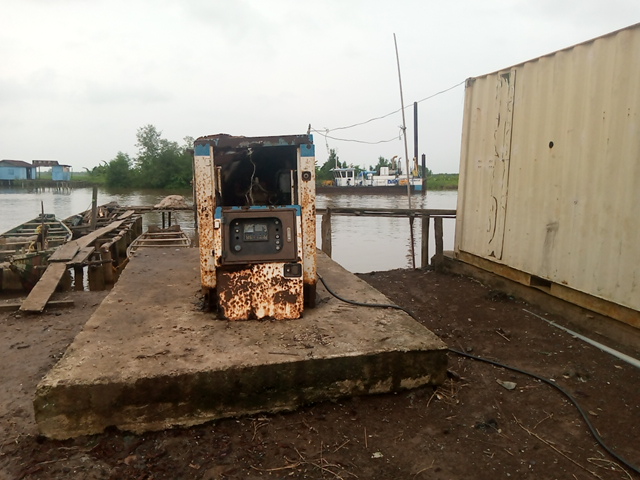
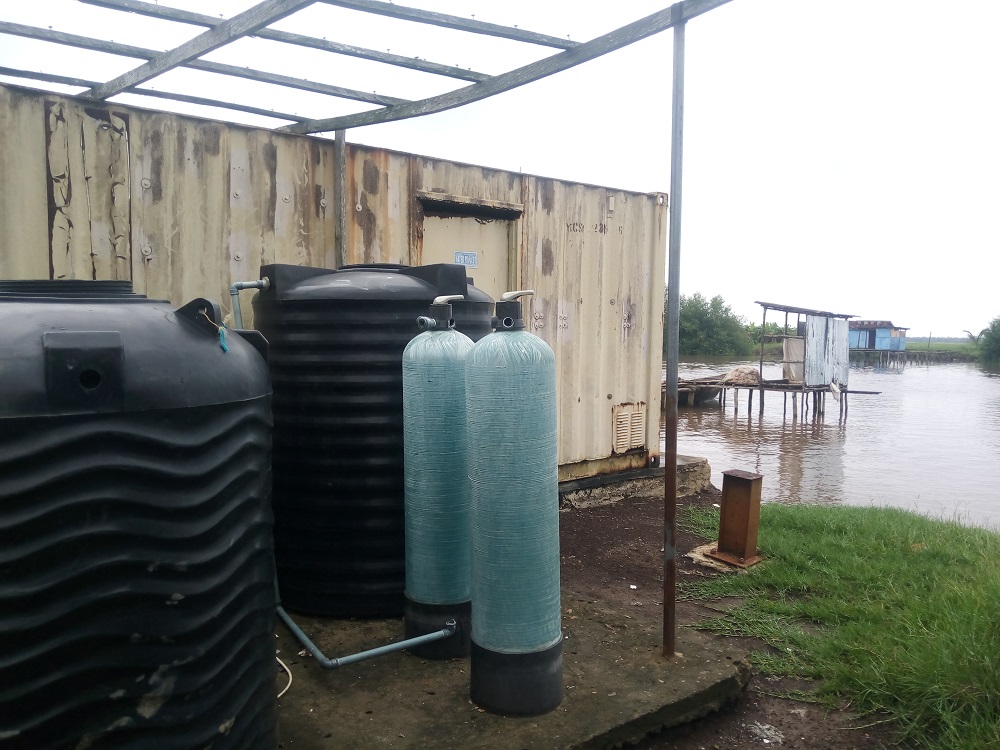
Meanwhile, NDDC was founded in 2000, following the endless agitations over the environmental pollution caused by oil exploration in the region. The mandate of the intervention agency was to oversee the development of the oil-rich region and tackle the ecological problems by executing projects that would abate the challenges and touch the lives of the people living in the nine-member states.
NDDC was later submerged in corruption, and it resulted in hundreds of incomplete or poorly executed projects. In early September 2021, Abubakar Malami, the Attorney-General of the Federation, admitted that the agency had caused the country “a colossal loss” with projects which execution was compromised.
Digging the project’s data analysis on the commission’s Project Monitoring Information System (PMIS), FIJ confirmed many of such projects with compromised execution.
In Ondo State, for instance, the sand filling and protection project at Ikirigho in Ilaje, awarded to the United Dominion Construction Company on April 26, 2012, and the Ilowo water project in December 2004 are still uncompleted.
The six billion naira Ayetoro shoreline protection project is another big example of NDDC’s scam.
A report by Priscilla Offiong, an environmentalist, titled “Nigeria Relies on Oil Despite Having Large Coal Reserves,” states that the Ilaje Local Government Area of Ondo State contributes 60,000 barrel of crude oil per day to the country’s oil production.
DYING BY INSTALMENT
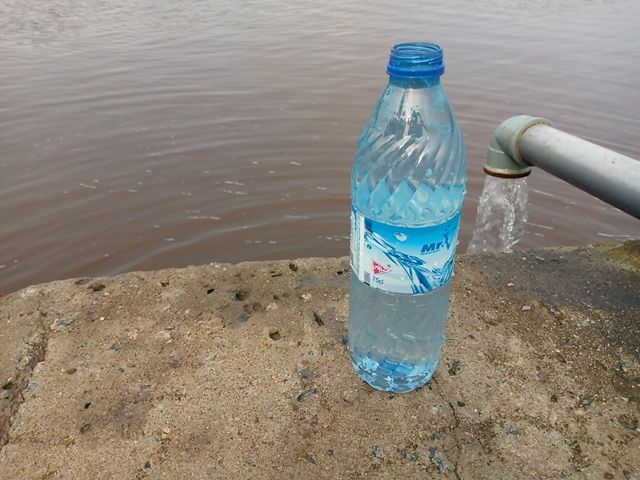
Based on the complaints of Ilaje residents across all communities this reporter visited, including Ayetoro, Ilowo, Molutehin and Obenla, FIJ obtained a sample of water from Ilowo, which houses one of the abandoned NDDC projects, for laboratory examination.
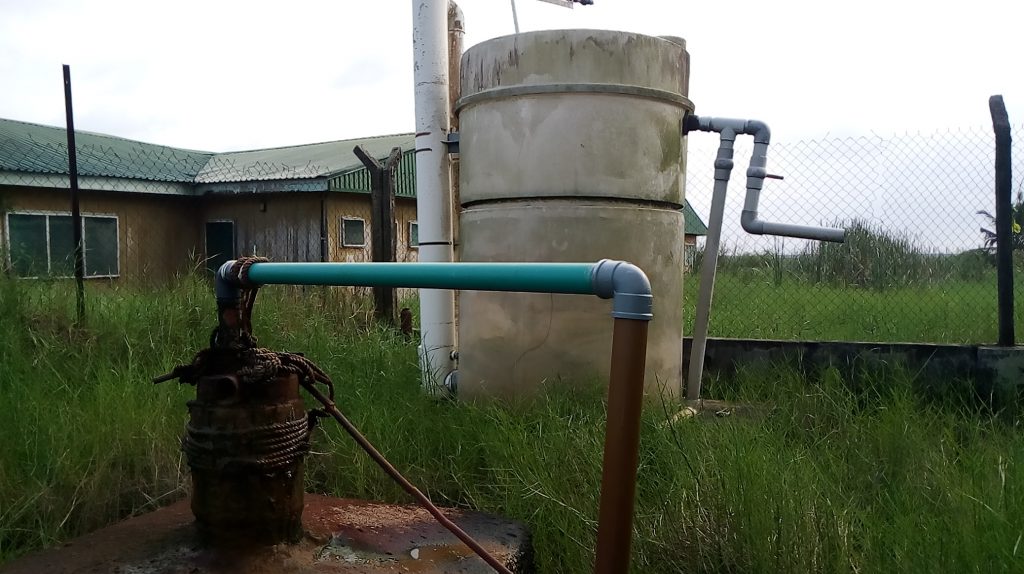
According to the World Health Organisation (WHO), 63million Nigerians do not have access to an improved source of drinkable water. While 75percent of the urban population enjoys improved water supply, just 42percent of people living in rural areas have access to clean water.
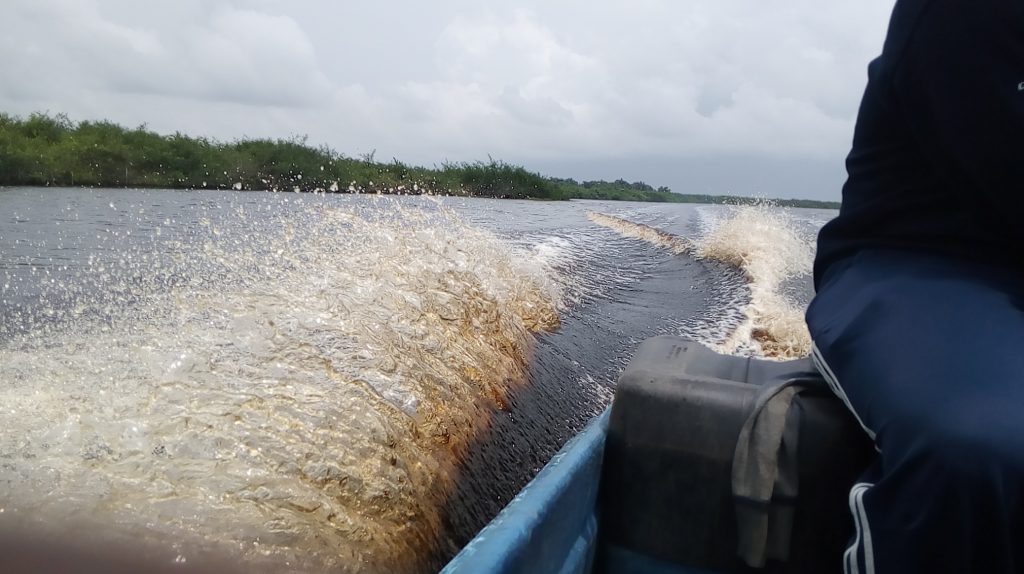
A water sample taken from the uncompleted borehole at Ilowo and subjected to laboratory tests at the University of Lagos showed pH level below the minimum standard of the World Health Organisation and also contained some bacteria.
The analyst, who prefers anonymity, suggested that the water be urgently treated to prevent diarrhea among the consumers. However, 2018 WHO data on the deaths caused by diarrhoea revealed that Nigeria had 178,438, 9.21% of total deaths in the country, and was ranked number six in the world.
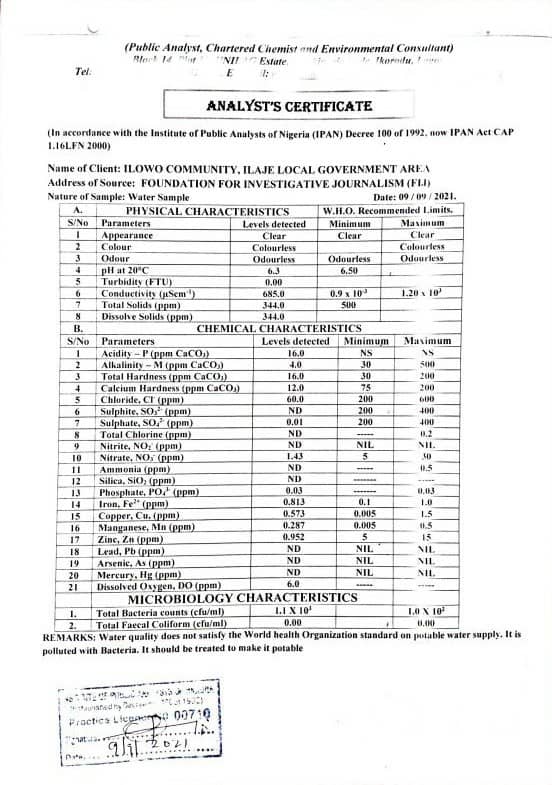
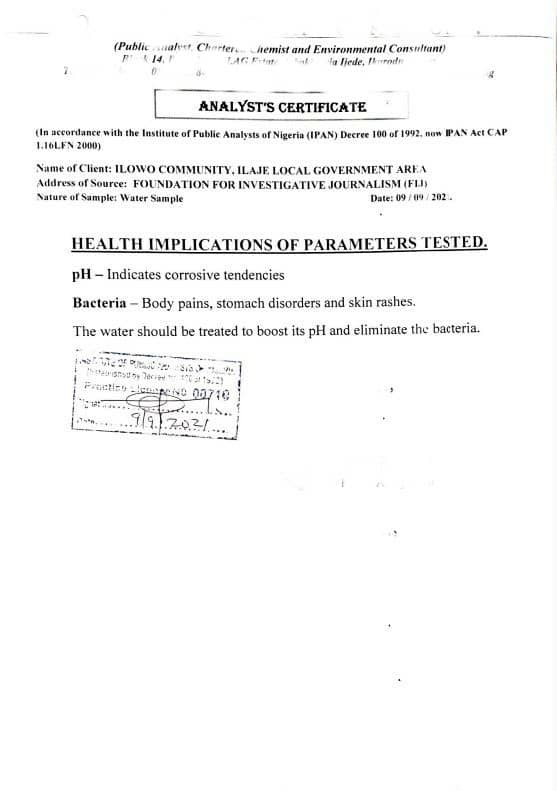
DPR AND NDDC’S CULTURE OF SILENCE
Paul Osu, the Head Of Public Affairs for the Department of Petroleum Resources (DPR), the agency that regulates the oil companies, didn’t answer FIJ’s calls for comment or respond to the text message sent on oil spillage in Ilaje communities.
Charles Odili, NDDC Director of Corporate Affairs, didn’t answer any of the calls placed to his phone number, but he later requested that an SMS be sent. When he was asked about the NDDC’s plan to resuscitate the abandoned projects across Ilaje communities, Odili told FIJ to “reach the NDDC office in Ondo State”.
Meanwhile, in August 2021, Godswill Akpabio, the Minister of Niger Delta Affairs, received a forensic audit report on the sharp practices of the NDDC across all nine-member states.
Preliminary reports have indicated that as many as 12,500 uncompleted projects were uncovered in the audit exercise. This development corroborated existing facts that only 12percent of impact has so far been achieved in the execution of projects in the entire Niger Delta region.
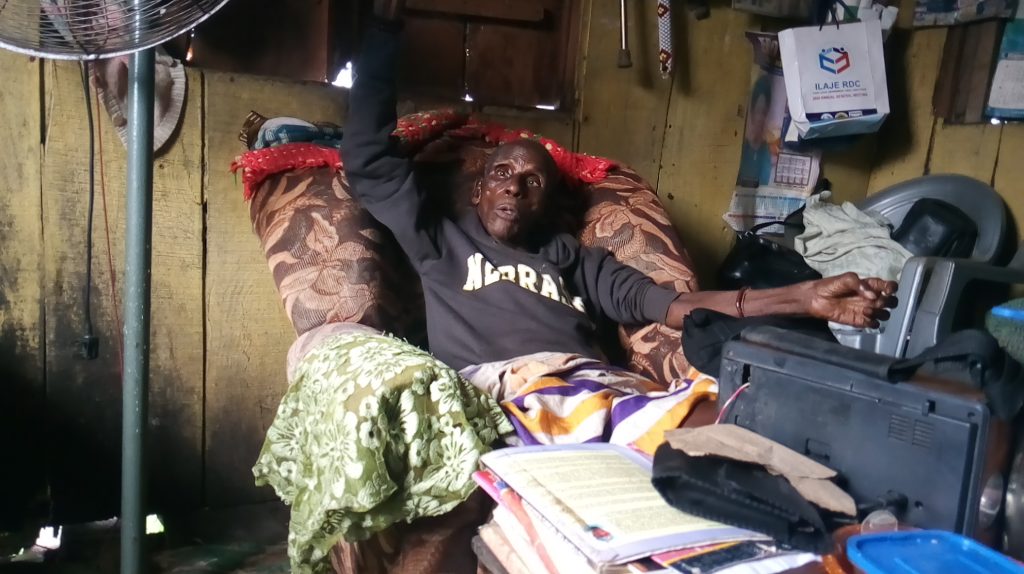
Back in the Ondo coastline area, 93-year-old Iyibo said,“If we die here, there is no land to bury us. Our remains would be shipped past Igbokoda, but there is no alternative for water.”
“Water is the most basic need of human beings, but the government has turned it against us,” she said.
Subscribe
Be the first to receive special investigative reports and features in your inbox.


